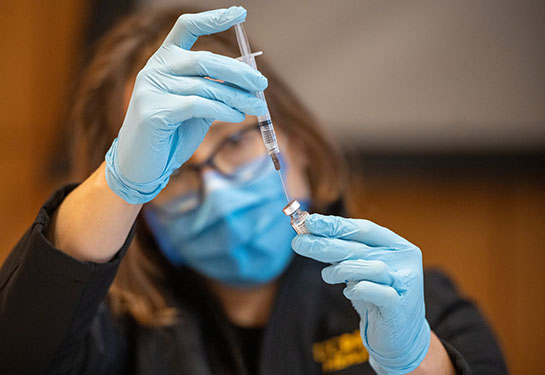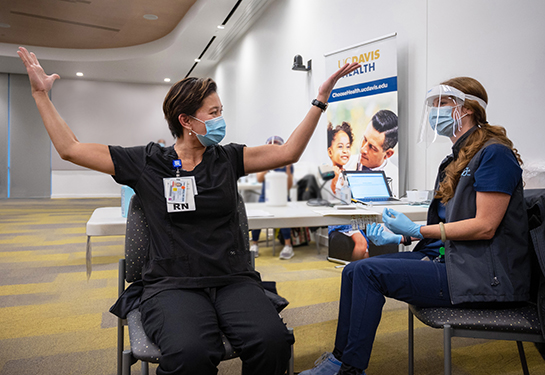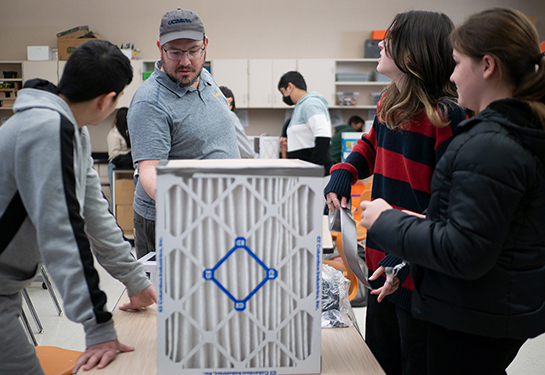COVID is surging again: What you need to know about the new vaccine
UC Davis Health is seeing a noticeable increase in COVID-19 cases. This mirrors a nationwide surge in infections.
A new COVID vaccine is arriving to pharmacies and clinics this month and early next month. Many patients are asking who will be eligible and when they can get it.
UC Davis Health’s Chief of Infectious Diseases Stuart Cohen is answering some of the most common questions. He explains what’s behind the current surge and shares practical advice on how to lower your risk of getting sick.
Are you seeing more COVID cases in the hospital and clinics?
COVID is surging again in California and across the U.S. We’re seeing it every day at UC Davis Health. Wastewater surveillance shows increasing levels of the virus, and many cases are being traced to children who bring it home from school. Even mild cases can spread quickly, especially to vulnerable people.
When can I get the new COVID vaccine this fall?
The newly updated COVID vaccines for the 2025-26 season are already available at some pharmacies and clinics in California. However, the FDA has reduced the number of people who are eligible to receive the vaccine this year.
Who is eligible to get the newly updated COVID vaccine?
According to the FDA, people who qualify for the updated COVID vaccine include:
- Adults aged 65 and older
- Individuals aged 6 months and older who have at least one high-risk health condition, such as asthma, diabetes, obesity or immunocompromising conditions
COVID vaccine guidance is not especially clear right now. For instance, the California Department of Public Health (CDPH) has different guidance than the federal government; CDPH is still recommending COVID vaccines for everyone aged 6 months and older, whether they are high-risk or not.
We are hoping for more clarity following the CDC’s Advisory Committee on Immunization Practices meeting on September 18-19.
What if I’m not in a high-risk group but still want the vaccine?
Ask your provider and check with your insurance company. If you do not fall into one of the eligible categories, the cost of your vaccine may not be covered. Some providers may offer the vaccine if you pay out-of-pocket, or they could have a discussion with you to determine whether you have personal risk factors that make you eligible. Some doctors may be hesitant to go against the narrowest guidance from the federal government, but it’s always worth having the discussion with them about your concerns.
What are main takeaways for patients?
These are the five main points I want to emphasize:
- Get whatever flu and COVID vaccines you are eligible to receive.
- Do it soon if you’re at high risk (immunosuppressed, have asthma, other lung problems or chronic problems like diabetes) and be sure to get one of the updated 2025-26 vaccines.
- The vaccines are rigorously tested for safety and are FDA-approved. Don't let misinformation about vaccines put you at higher risk for serious illness.
- Whether you get vaccinated or not, always follow the basic, common-sense precautions: wash hands often, mask in crowded places and stay home when you feel unwell.
- It’s better to get vaccinated than to get sick.




